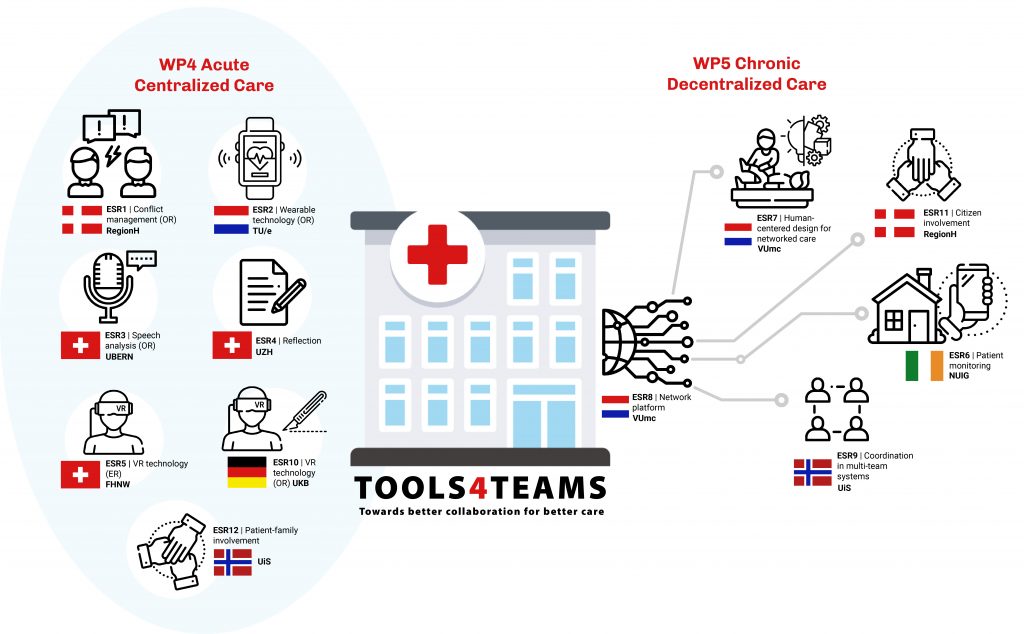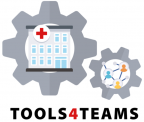Aims
Teamwork is crucial to maintain safe and effective care
There is ample evidence that effective teamwork is crucial tothe provision safe and effective patient care. In the last decade significant progress has been made to describe cognitive, affective, and behavioural team interactions that determine safe and effective care. These team interactions are supported by healthcare professionals’ non-technical skills- a combination of cognitive (e.g. situational awareness, decision making), social (e.g. leadership) and self-regulation skills (e.g. stress and fatigue).
Current challenges to effective team performance
The complexity of healthcare is rapidly increasing due to technological innovations, increasing healthcare specialisation, and decentralisation of care delivery. These changes pose emerging challenges to the perfomance of health care teams, such as the need for collaboration between multiple teams- including patients and families as team members. Therefore, new tools,approaches, and training are required to support healthcare teams to meet these challenges. The Tools4Teams network will study emerging tools for improving teamwork, as well as developing new approaches to address emerging teamwork challenges in healthcare.

Training programme
The primary goal of the Tools4Teams project is to train 12 highly skilled Doctoral Candidates with in-depth knowledge and cross-disciplinary expertise in methods for research on teamwork and health services, design and system thinking, and ethics, complemented with transferable and networking skills, an entrepreneurial mind-set and experience of industrial application.
Tools4Teams aims to establish a European training network to prepare the next generation of teamwork experts to contribute to the next step in safe and effective care. Tools4Teams brings together expertise from social and technical sciences, human centred design, education, and clinical specialties alongside non-academic partners from technological business, healthcare, and education to reach both scientific and societal impact.
Coordinator: Martine de Bruijne (Amsterdam UMC, location VUmc)
This project has received funding from the European Union’s Horizon Europe research and innovation programme under the Marie Skłodowska-Curie grant agreement No 101072843

